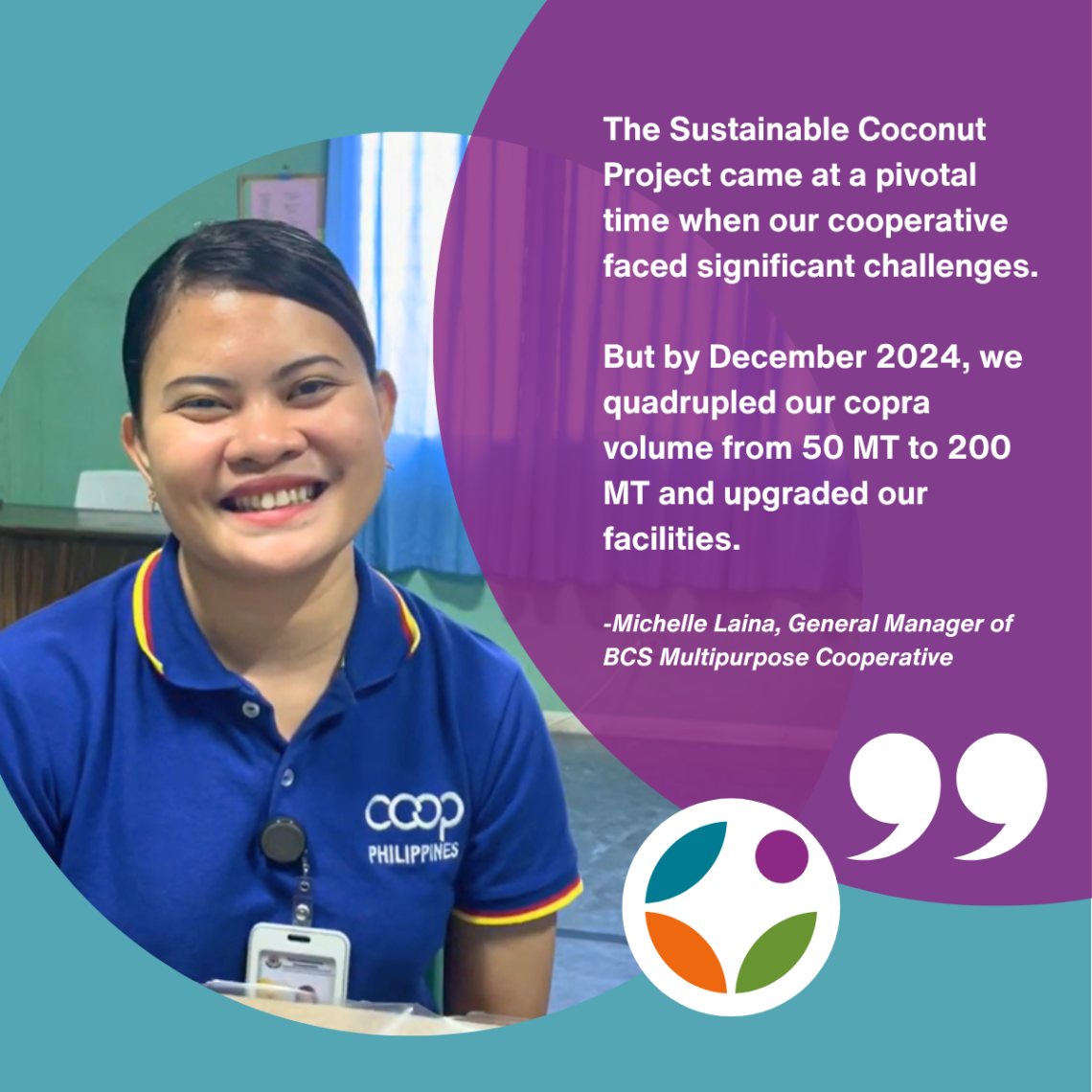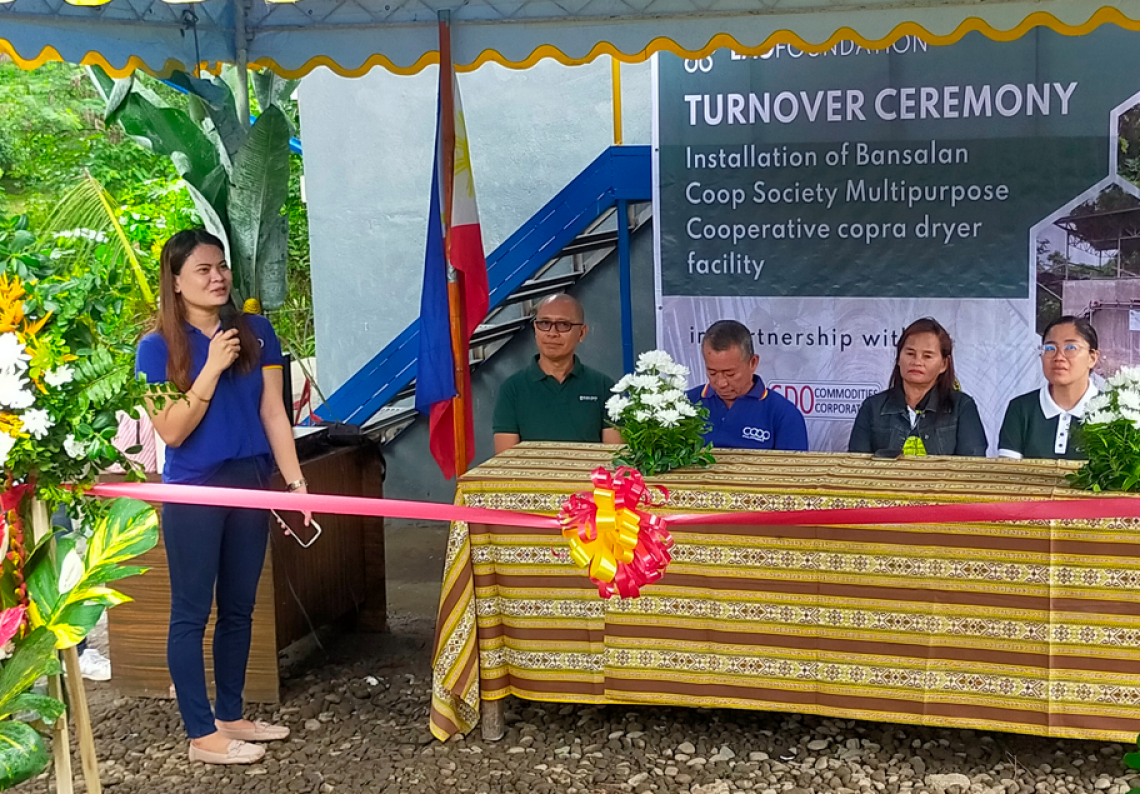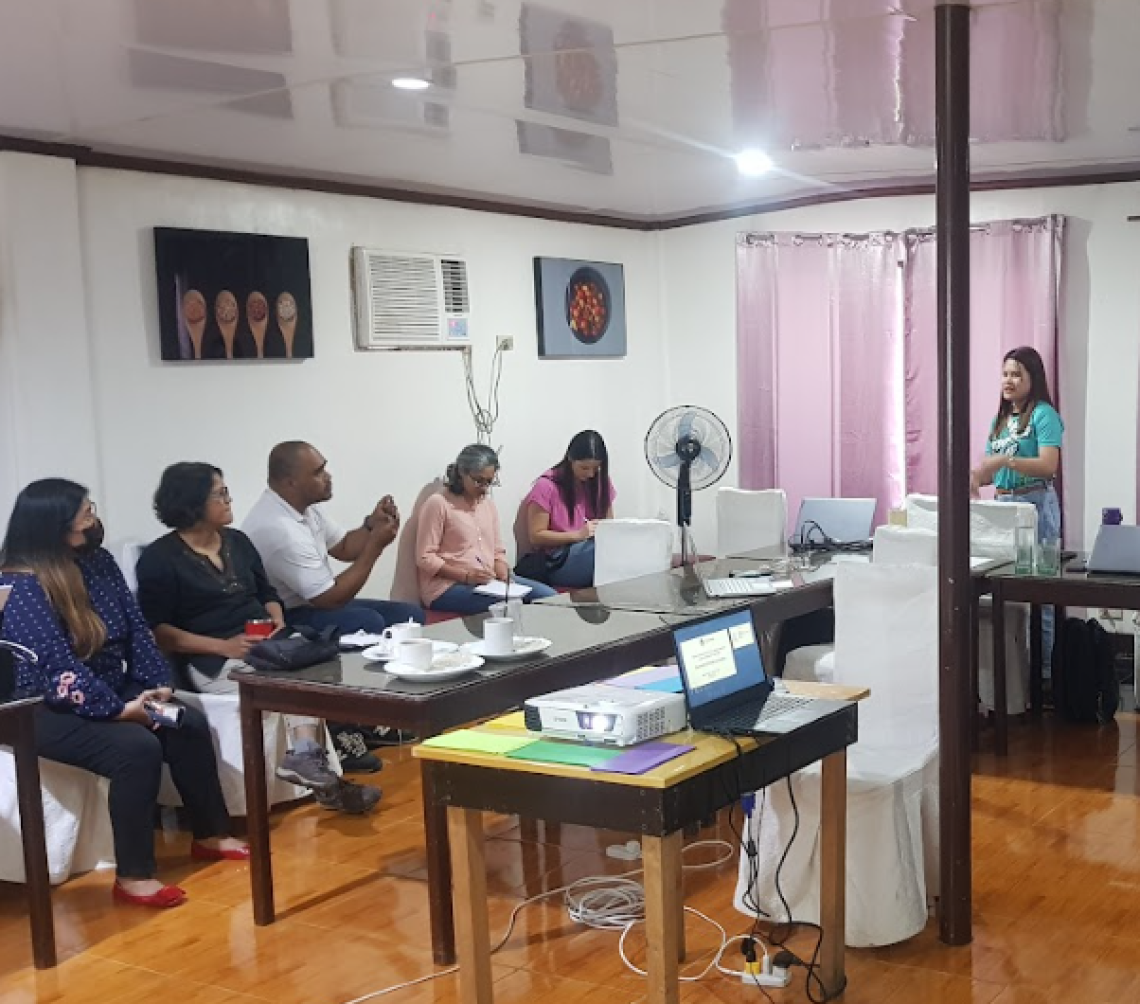Make your 2X MATCHED gift today!
This week only: Every $1 will be matched with $2 to enable women worldwide.
This week only: Every $1 will be matched with $2 to enable women worldwide.
Posted on 09/30/2025

Michelle Laina is the General Manager of BCS Multipurpose Cooperative (BCSMPC).
Since 2015, Grameen has worked with over 51,000 smallholder coconut farmers, increasing their incomes, resilience and agency through a proven holistic approach that enables an inclusive, sustainable market system. Grameen has improved trust and collaboration between 12 cooperatives such as the BCSMPC, oil mills, and provided technical assistance to enhance cooperatives’ business, operational, and financial skills, and has co-developed digital tools and designed new training curriculum to improve coconut-related productivity and trading.
The below are reflections from Michelle Laina on Grameen Foundation's partnership with BCSMPC.
The Sustainable Coconut Project came at a pivotal time when our cooperative faced significant challenges. Struggling to source copra due to uncompetitive pricing, we found ourselves in a difficult position. However, when our partner oil mill, CDO Commodities, approached us, it marked the beginning of a transformative journey. With the project’s Extension Officers enhancing the cooperative’s visibility on the ground, we witnessed a revival of confidence among our members.
Activities like Farmer Sensitization and Copra Quality Training played a key role in raising awareness about our products and services. These initiatives not only empowered farmers but also enabled us to improve our copra sourcing practices, with the ultimate goal of increasing profitability. Through capacity-building support from the project and other partner organizations, we were inspired to revisit and strengthen our business operations strategy. This included a sharper focus on copra processing management, sourcing, and pricing strategies. The continuous support of CDO Commodities has been, and remains, instrumental in accelerating our operations. To put this into perspective, before the project began in July 2023, we struggled to reach 50 MT of copra monthly. By December 2024, we successfully quadrupled our monthly copra volume, averaging 200 MT in the last two quarters. Additionally, we improved our warehouse-cum-processing area and operationalized a drying facility donated by our partner oil mill, further enhancing our operational efficiency.

The FarmerLink Traceability System introduced by the project has also proven invaluable in our decision-making processes. The system’s farmer sales records provide critical data that we regularly use in Board of Directors’ meetings. We also use the information from Grameen Foundation | 6 the traceability system to help us determine the appropriate loanable amount for our members to avail and make better decisions on loan releases for the benefit of both the member and the cooperative. Originally, we only referred to the member’s share capital to decide on the allowed loanable amount for the member. However, with additional information from the traceability system, we are able to consider the member’s copra delivery frequency and potential copra volume in deciding the member’s appropriate loanable amount. As a result, members usually get a higher allowed loanable amount compared to just considering their share capital. This helps the members access additional finance for their agricultural business while it also ensures the cooperative that the member farmer is still capable of paying their loans despite increasing their loanable amount.
Furthermore, the support of Bankers without Borders (BwB) has been pivotal in strengthening our organizational capacity. While we initially sought assistance to draft our Copra Trading Policy Paper, their volunteers exceeded expectations by helping us improve our reporting systems and streamline meeting processes, ensuring more effective governance.
We deeply appreciate the remarkable impact of the Sustainable Coconut Project.
Moving forward, we remain committed to maximizing the opportunities this initiative has brought to our cooperative. As the project concludes, we plan to sustain its benefits by leveraging the training materials and learnings. To this end, we will seek partnerships with local government units and other organizations to secure funding for human resource development and training mobilization.
The journey has not been without challenges, but with the continued support of our partners and a revitalized cooperative spirit, we are confident in our ability to build a stronger, more sustainable future for our members.
This testimony was documented on December 5, 2024 during a Capacity Development Plan assessment in Bansalan, Davao del Sur.
